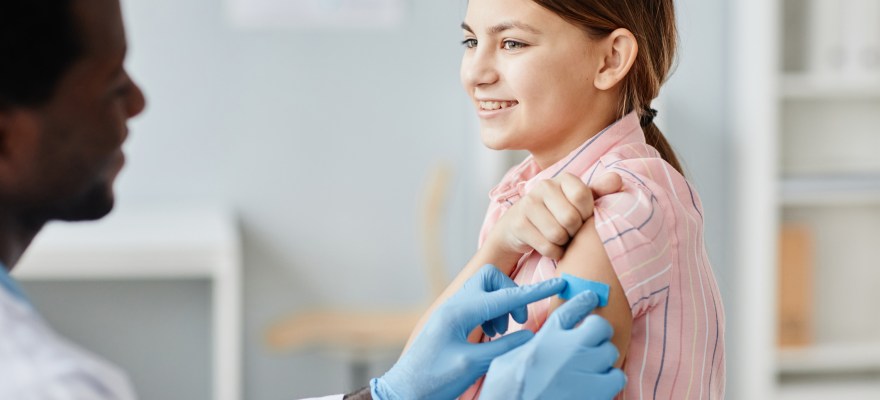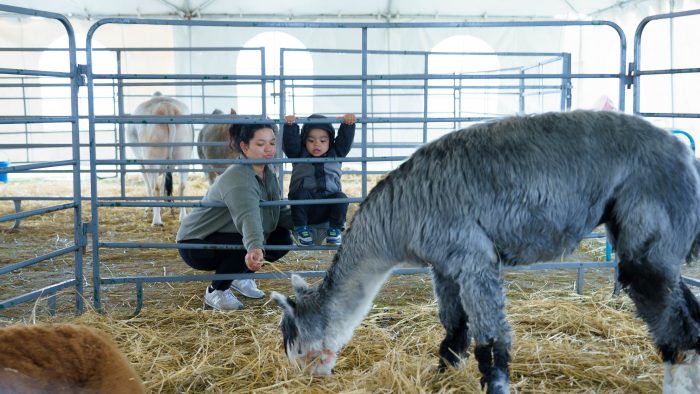
HPV vaccination rates in the United States slowed down in 2020. The reason for this? Experts say because the COVID-19 pandemic caused many parents to delay regular health-care visits for their children.
Locally, in Staten Island, teen vaccination rates are lower compared to the rest of the city.
In 2020, there were one million less HPV vaccine doses given in the country, as compared to 2019. Data shows a 71% decrease in health-care visits for children ages 7-17 years old throughout 2020.
“These children continue to be at risk of HPV-related cancers and other viruses and bacteria that can be prevented by vaccines,” Ashley Stephens, MD, assistant professor of pediatrics at Columbia University Irving Medical Center, said. “If you had to put off your child’s vaccinations, talk to your health-care provider about getting them back on your calendar.”
HPV vaccination isn’t the only childhood immunization that was left behind during the pandemic. A study in JAMA Pediatrics found that routine childhood vaccinations rates declined across all pediatric groups in 2020. The JAMA study concluded that interventions are needed to promote catch-up vaccination, particularly in populations at risk for underimmunization.
HPV is a virus that can cause certain cancers. These include cervical, vaginal, vulvar, penile, and anal cancers, and cancer of the mouth and throat. It is one of only two vaccines that can prevent cancer. The other one is the Hepatitis B vaccine that can prevent liver cancer. The HPV vaccine can be given to children, both boys and girls, starting at age 9.
HPV Vaccination on Staten Island
Doctors and other experts are raising awareness about the HPV vaccine on Staten Island, where vaccination rates are particularly low. The Staten Island rate for teens ages 13-17 who completed all needed HPV vaccination doses is about 27%, compared to almost 60% to NYC.
In partnership with the Office of the Staten Island Borough President and Richmond University Medical Center, the medical at team at Columbia University’s Herbert Irving Cancer Center was awarded a three-year grant in 2021 called Cancer Prevention in Action (CpiA). The grant works toward increasing HPV vaccination rates within the borough.
“The low rates of HPV vaccination in Staten Island would increase if we could effectively communicate to parents that this vaccine, much like the Hepatitis B vaccine, prevents cancer,” Ana Mendez, MD, MPH, FAAP, chief of ambulatory pediatrics, Patient Centered Medical Home at Richmond University Medical Center, said.
Funds for the grant come from Health Research, Inc., and the New York State Department of Health. There is also some funding from the Centers for Disease Control and Prevention (CDC).
“There are very few tools we have against preventing cancer, and the HPV vaccine is one of them,” Ginny Mantello, MD, director of health and wellness at the Staten Island Borough President’s office, said. “Vaccinating your child at the recommended ages can help keep them healthy well into adulthood and prevent six different HPV-related cancers.”
HPV Vaccination in the United States
There has been an 88% reduction in HPV infections that often cause cancer among females ages 14-19 since the introduction of the HPV vaccine in the U.S. There has been an 81% reduction among females ages 20-24, according to the CDC.
“I recommend the HPV vaccine to all my patients ages 9 and up. The vaccine prevents several types of cancers. And it’s important to get it when they are young, long before they may be exposed to HPV,” Stephens said. “HPV vaccine is more than 90% effective at preventing HPV-related cancers. It‘s better to get it earlier rather than later because children develop more antibodies than adults and only need two doses if they start the vaccine series before they turn 15.”
Anyone up to age 45 can get the vaccine, but the cancer-preventing benefits are less effective as people get older.
Wanna read more stuff like this? Get our newsletters packed with ideas, events, and information for parents in Staten Island.






